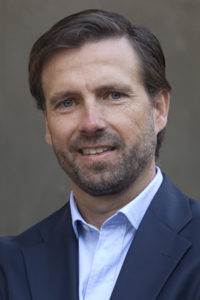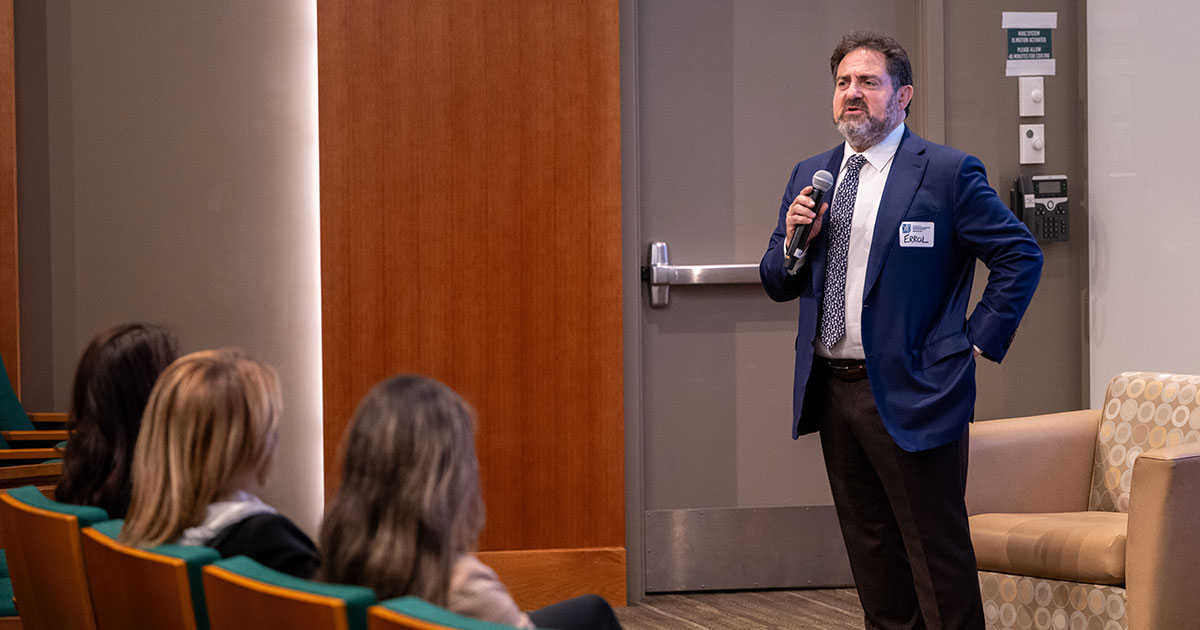Leading Change and Finding Scale Through Franchising

Franchising has proven to be a compelling and successful business model for decades. Now, Babson entrepreneurial leaders are demonstrating that franchising is also a powerful vehicle to create economic and social value.
Even in times of widespread disruption, franchising offers distinct advantages. Entrepreneurial leaders who can innovate are able to discover opportunities and create value, according to several Babson alumni who shared their insights in the latest Babson Connect: Online session with President Stephen Spinelli Jr. MBA’92, PhD, an experienced franchisor who literally co-wrote the book on franchising.
The Potential of Franchising

Somia Farid Silber ’15
When faced with the COVID-19 outbreak, Somia Farid Silber ’15, Vice President of eCommerce at Edible Brands, and her team made a quick pivot to ensure that Edible franchise owners would continue to drive revenue. They not only adapted messaging and product focus, but they did so quickly, in a matter of hours, and at scale, directing 1,000 retail units.
She spoke during a virtual panel titled “Franchising: Managing Disruption for an Industry in Crisis,” alongside Trustee Craig R. Benson ’77, H’03; Ignacio Mora-Figueroa MBA’00; Juan Carlos Serrano P’18 ’18 ’21, of the Global Advisory Board; and Spinelli.
Franchising enables a “rapid response to changes in market demand, but at scale,” Spinelli said. The business model itself provides a competitive advantage for entrepreneurial leaders seeking to drive impact effectively and in a human-centric way.

Ignacio Mora-Figueroa MBA’00
Franchising also provides a framework to identify and act upon new opportunities. Mora-Figueroa, Chairman and CEO of Casual Brands Group (CBG) – Taco Bell, shared that many new retail sites have become available during COVID-19 for a variety of reasons. With an entrepreneurial mindset, massive disruption in the industry can, in fact, be seen as opportunity.
“So, if you’re in the right situation financially and you lose a little bit of the current scare that everybody has,” he said, “there’s going to be such an amazing amount of opportunities.”
Making Franchising Impactful
How can entrepreneurial leaders ensure that they are leveraging the business model to its full potential? In a recent virtual event with The Arthur M. Blank Center for Entrepreneurship, Bob Rosenberg H’97, P’94, former CEO of Dunkin’ and author, stressed the importance of building trust between franchisors and franchisees: “Trust is at the heart of all successful relationships and absent in all unsuccessful relationships.”

Bob Rosenberg H’97, P’94
Rosenberg shared stories and advice from his 35-year tenure as CEO. Experiencing a “transformational moment” early in his career, he learned to listen to people working on the front lines of the business. This entailed visiting stores and talking with franchisees, as well as developing an appreciation for what these franchisees bring to the table: capital, skill, passion, and commitment to their communities.
When the lines of communication are open between franchisor and franchisees, there is an opportunity for a powerful partnership. Rosenberg recounted how Dunkin’ enlisted its franchisees in a campaign called “The Pledge,” so-named for the company’s promise to freshly brew coffee every 18 minutes and to bake donuts every four hours. This was as much a campaign to internally mobilize around a common goal as it was an advertising campaign.
Equipped with the right mindset and the skills to listen, develop trust, and build relationships, entrepreneurial leaders can maximize impact through franchising. Echoing the sentiments of Spinelli, with whom he co-authored the book Franchising: Pathway to Wealth Creation, Rosenberg shared his enthusiasm for franchising: “It’s a fabulously successful model.”
Posted in Community



